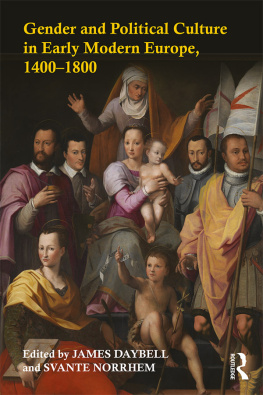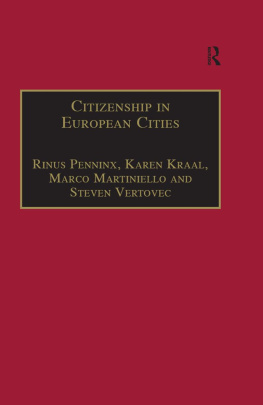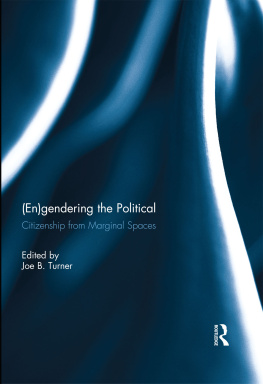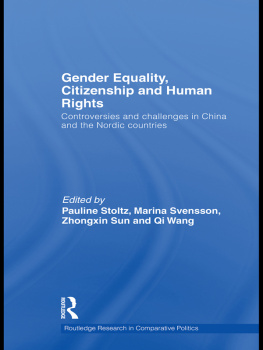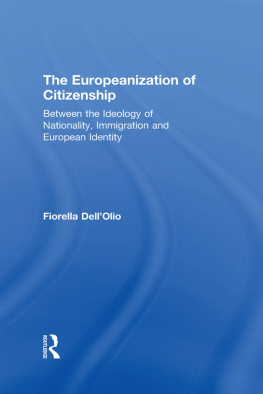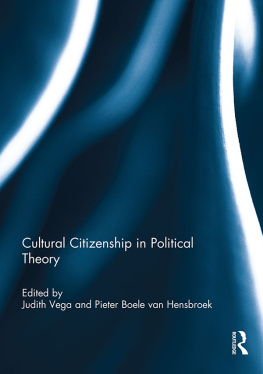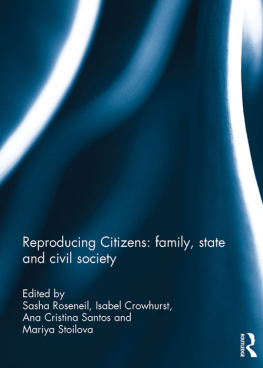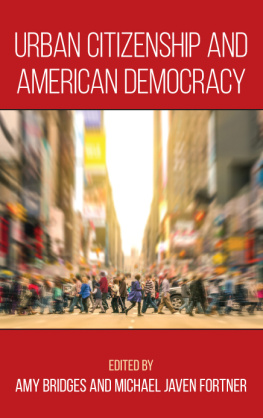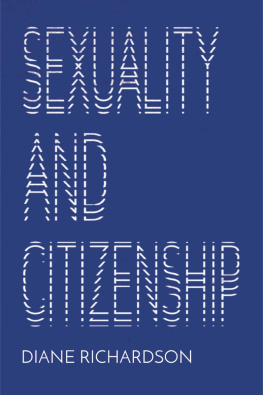Gender in Urban Europe
Modern conceptions of citizenship are frequently associated with the emergence of nation-states, but throughout the period covered by this volume, citizenship continued to be practised at a local level. An on-going growth in urban populations prompted an associated rise in the power and complexity of local government, making towns and cities a central site for the privileges and demands of modern citizenship. This volume investigates the complex and sometimes unexpected ways in which women and men negotiated the gendering of citizenship in urban locations, at the same time paying attention to the interrelated impact of social class, age and marital status on its development. Through an integrated set of local studies exploring the gendering of political activities across a variety of sites, the volume explores the processes through which groups developed political activity and the connections between such activity and the expansion of citizenship. It contributes to an overall discussion of the connections between the formation of gendered and class-dependent citizenship, and the development of democracy and political representation.
Krista Cowman is Professor of History and Director of Research in the College of Arts, University of Lincoln.
Nina Javette Koefoed is Associate Professor of History in the Department of Culture and Society at Aarhus University.
sa Karlsson Sjgren is Professor of History in the Department of historical, philosophical and religious studies at Ume University.
Routledge Research in Gender and History
1 The Womens Movement and Womens Employment in Nineteenth Century Britain
Ellen Jordan
2 Gender, Sexuality and Colonial Modernities
Edited by Antoinette Burton
3 Womens Suffrage in the British Empire
Citizenship, Nation and Race
Edited by Ian Christopher Fletcher, Laura E. Nym Mayhall and Philippa Levine
4 Women, Educational Policy-Making and Administration in England
Authoritative Women Since 1800
Edited by Joyce Goodman and Sylvia Harrop
5 Women, Gender and Labour Migration
Historical and Global Perspectives
Edited by Pamela Sharpe
6 Women, Accounting, and Narrative
Keeping Books in Eighteenth-Century England
Rebecca Elisabeth Connor
7 The Educated Woman
Minds, Bodies, and Womens Higher Education in Britain, Germany, and Spain, 18651914
Katharina Rowold
8 Political Women
The Womens Movement, Political Institutions, the Battle for Womens Suffrage and the ERA
Alana S. Jeydel
9 Women, Education, and Agency, 16002000
Edited by Jean Spence, Sarah Jane Aiston, Maureen M. Meikle
10 Gender, Migration and the Public Sphere, 18502005
Edited by Marlou Schrover and Eileen Janes Yeo
11 Across the Religious Divide
Women, Property, and Law in the Wider Mediterranean (ca. 13001800)
Jutta Gisela Sperling and Shona Kelly Wray
12 Gender, Power, and Military Occupations
Asia Pacific and the Middle East since 1945
Edited by Christine de Matos
and Rowena Ward
13 The Schooling of Girls in Britain and Ireland, 18001900
Jane McDermid
14 Gender in Late Medieval and Early Modern Europe
Edited by Marianna G. Muravyeva and Raisa Maria Toivo
15 The Political Worlds of Women
Gender and Politics in Nineteenth Century Britain
Sarah Richardson
16 Men After War
Edited by Stephen McVeigh and Nicola Cooper
17 Female Agency in the Urban Economy
Gender in European Towns, 16401830
Edited by Deborah Simonton and Anne Montenach
18 Women and the Media
Feminism and Femininity in Britain, 1900 to the Present
Edited by Maggie Andrews and Sallie McNamara
19 Gender in Urban Europe
Sites of Political Activity and Citizenship, 17501900
Edited by Krista Cowman, Nina Javette Koefoed and sa Karlsson Sjgren
First published 2014
by Routledge
711 Third Avenue, New York, NY 10017
and by Routledge
2 Park Square, Milton Park, Abingdon, Oxon OX14 4RN
Routledge is an imprint of the Taylor & Francis Group, an informa business
2014 Taylor & Francis
The right of Krista Cowman, Nina Javette Koefoed and sa Karlsson Sjgren to be identified as the authors of the editorial material, and of the authors for their individual chapters, has been asserted in accordance with sections 77 and 78 of the Copyright, Designs and Patents Act 1988.
All rights reserved. No part of this book may be reprinted or reproduced or utilised in any form or by any electronic, mechanical, or other means, now known or hereafter invented, including photocopying and recording, or in any information storage or retrieval system, without permission in writing from the publishers.
Trademark Notice: Product or corporate names may be trademarks or registered trademarks, and are used only for identification and explanation without intent to infringe.
Library of Congress Cataloging-in-Publication Data
Gender in urban Europe : sites of political activity and citizenship, 17501900 / edited by Krista Cowman, Nina Javette Koefoed and sa Karlsson Sjgren.
pages cm. (Routledge research in gender and history ; 19)
Includes bibliographical references and index.
1. Sex roleEuropeHistory. 2. CitizenshipEurope. 3. National characteristics, EuropeanHistory. 4. NationalismEuropeHistory. 5. WomenPolitical activityEuropeHistory. 6. Political participationEuropeHistory. I. Cowman, Krista, 1964
HQ1075.5.E85G4625 2014
305.3094dc23
2014000276
ISBN13: 978-0-415-85889-2 (hbk)
ISBN13: 978-0-203-70930-6 (ebk)
Typeset in Sabon
by IBT Global.
In Europe today, most of the population lives in towns and women still make up the majority; thus the relationships between men and women and an understanding of masculinity and femininity are central to the idea of the city. As women constituted a significant majority in most towns, which were governed by men of a certain social order, the cultural dynamics of gender were and remain important. Towns were central to migratory patterns and crucial in the transmission of ideas across what came to be seen as the idea of Europe. Europe was identified as a place in the minds eye, but boundaries shifted, nation-states were not fixed, and people identified as much with locality, region or principality as nationality. Thus, many people shaped their identities from urban culture. As places which fostered and disseminated key social, economic, political and cultural developments, towns were central to the creation of gendered identities and the transmission of ideas across local, national and transnational boundaries. This book is one of a series of publications from a European network of historians whose interests lie in examining the ways that the European urban experience was gendered over time and across borders. We also ask what influence gender has on the shape of towns themselves.



